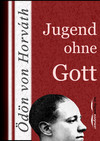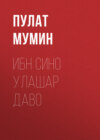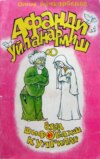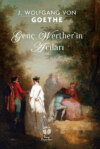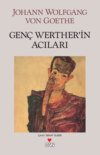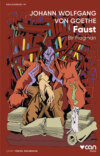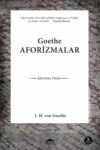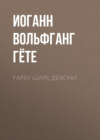Kitabı oku: «German Fiction», sayfa 25
CHAPTER VIII
At about this same time there were at the club two young cavaliers, one of them, who was tall, slender and smooth-faced, belonged to the Gardes du Corps; the other, who was somewhat shorter, and had a full beard with only the regulation smooth chin, had been dismissed from the Pasewalkern. The white damask table cloth, which remained from their breakfast, had been turned back and the two were playing piquet on the bare half of the table.
"Six cards and four of a kind."
"Very well."
"And you?"
"Fourteen aces, three kings, three queens… And you don't make a trick." And he laid his hand on the table and then pushed all the cards together while his companion shuffled.
"Did you know that Ella is about to be married?"
"What a pity!"
"Why a pity?"
"She can't jump through the hoop any more."
"Nonsense. The more they are married the slenderer they grow."
"Yet there are exceptions. Many names belonging to the aristocracy of the circus already appear in the third and fourth generation, which seems to point to some alternation of a slender and a stouter form, or if you like, to the new moon, the first quarter, &c."
"You are mistaken. Error in calculo. You forget that there may be adoptions. All these circus people are secretly 'Gichtelianer' and pass on their property, their rank and their names according to agreement. They seem the same and yet they are different. There is always fresh blood. Cut… Besides that I have another bit of news. Afzelius is to join the General Staff."
"Which do you mean?"
"The one who belongs to the Uhlans."
"Impossible."
"Moltke values him highly and he must have done some excellent work."
"He does not impress me. It was all an affair of hunting libraries and plagiarizing. Any one who is a trifle ingenious can turn out books like Humboldt or Ranke."
"Four of a kind. Fourteen aces."
"Five sequence to king."
And while the trick was being played, one could hear from the billiard room near by the sound of the balls and the falling of the little pins.
In the two back rooms of the club, the narrow side of which looked out on a sunny but tiresome garden, there were in all only six or eight men, all silent, all more or less absorbed in their whist or dominoes, and not the least absorbed were the two men who had just been talking about Ella and Afzelius. The game ran high, and so the two did not look up until they saw, through an open curved niche, a new-comer approaching from the next room. It was Wedell.
"But Wedell, if you don't bring us a lot of news, we will excommunicate you."
"Pardon, Serge, there was no definite agreement."
"But almost. For the rest, you will find me personally in the most accommodating mood. How you can settle things with Pitt, who has just lost 150 points, is your affair."
Thereupon the two men pushed the cards aside and the young man whom Wedell had greeted as Serge took out his watch and said: "Quarter past three. Time for coffee. Some philosopher, and he must have been one of the greatest, once said that the best thing about coffee was that it was always suitable under all circumstances and at all times of day. Truly that was a wise saying. But where shall we take it? I think we had better sit outside on the terrace, right in the sun. The more one braves the weather the better one fares. Here, Pehlecke, three cups. I cannot listen to the falling of the pins any longer. It makes me nervous; outside, indeed, there is noise too, but it is different, and instead of the sharp strokes, we shall hear the rumbling and thundering of the underground railway, and we can imagine that we are on Vesuvius or Ætna. And why not? All pleasures are in the last analysis imaginary, and whoever has the best imagination enjoys the most pleasure. Only unreality gives value and is actually the only reality."
"Serge," said the man who had been addressed as Pitt at the piquet table, "if you go on with your famous wise sayings, you will punish Wedell more severely than he deserves. Besides, you must have some mercy on me because I have been losing. So, we will stay here, with the lawn behind us, this ivy near us, and a view of a bare wall. A heavenly location for his Majesty's guards! What would old Prince Pückler have said to this club garden? Pehlecke, here, bring the table here, that will do. And, to finish with, you may bring us some of your very best lager. And now, Wedell, if you want to win forgiveness, give your cloak a shake, and see if you cannot shake a new war or some other big piece of news out of it. You are related to God in heaven through the Puttkamers. With which branch I need not say. What more is he brewing?"
"Pitt," said Wedell, "I beg you, don't ask me any questions about Bismarck. For in the first place, you know that I know nothing about such matters, because cousins in the seventeenth degree are not precisely the intimates and confidants of princes, and in the second place, I come, instead of from the Prince, direct from a shooting match where with a few hits and many, many misses, no other than his Highness was the target."
"And who was this bold shot?"
"The old Baron Osten, Rienäcker's uncle. A charming old gentleman and a good fellow. But of course a sly dog also."
"Like all Märkers."
"I am one myself."
"Tant mieux. Then you know all about it yourself. But out with it. What did the old fellow say?"
"A good many things. His political talk was hardly worth reporting, but another bit of news was all the more important: Rienäcker has a sharp corner to turn."
"And what corner?"
"He is about to marry."
"And you call that a sharp corner to turn? I beg to disagree with you, Wedell; Rienäcker stands in a much more difficult position: he has 9000 marks a year and spends 12000, and that is the sharpest of all corners, at least sharper than the marriage corner. Marriage is no danger for Rienäcker, but a rescue. For that matter, I have seen it coming. And who is it then?"
"A cousin!"
"Naturally. A rescuer and a cousin are almost identical terms at present. And I will wager that her name is Paula. All cousins are named Paula these days."
"But this one is not."
"And her name?"
"Katherine."
"Katherine? Ah, now I know. Katherine Sellenthin. Hm! Not so bad, in fact a brilliant match. Old Sellenthin, he is the old man with the plaster over his eye, has six estates, and with the farms there are really thirteen. If divided in equal parts, Katherine will get the thirteenth thrown in. My congratulations."
"Do you know her?"
"Certainly. A wonderful flaxen-haired blonde with eyes as blue as forget-me-nots, but for all that she is not sentimental, and is less like the moon than like the sun. She was here at Frau Zülow's Pension, and at fourteen she was already surrounded and courted."
"At the Pension?"
"Not really at the Pension and not every day, but on Sundays when she went to lunch with old Osten, the one whom you have just seen. Katherine, Katherine Sellenthin!.. she was like a rail then, and that is what we used to call her, and she was the most charming little hoyden that you can imagine. I can still see her braid of hair, which we always called the distaff. And Rienäcker will now have a chance to spin it off. Well, why not? It will not be so difficult for him."
"After all, it may be more difficult than many think," answered Wedell. "And while he certainly needs his finances improved, yet I am not sure that he would decide at once in favor of the blond beauty from his own province. For you must know that Rienäcker has for some time past enjoyed another tint, indeed ash-blond, and if what Balafré lately told me is true, he has been seriously considering whether he should not raise his blanchisseuse to the rank of la dame blanche. He sees no distinction between Castle Avenal and Castle Zehden. A castle is a castle and, you know, Rienäcker, who for that matter, goes his own way in many things, was always in favor of naturalness."
"Yes," laughed Pitt. "That he was. But Balafré draws the long bow and invents interesting tales. You are sober, Wedell, and will not be ready to believe such made up nonsense."
"No, it is not imaginary," said Wedell. "But I believe what I know. Rienäcker, in spite of his six feet, or perhaps because of them, is weak and easily guided and is peculiarly gentle and tenderhearted."
"He certainly is. But circumstances will compel him and he will break away and free himself, at the worst like a fox out of a trap. It is painful and a bit of one's life is left behind. But the main thing is to get out again-out, out and free. Long live Katherine! And Rienäcker! What does the proverb say? 'God helps those who help themselves.'"
CHAPTER IX
That evening Botho wrote to Lena that he would come on the following day, perhaps even earlier than usual. And he kept his word and arrived an hour before sunset. Naturally he found Frau Dörr there. The air was very fine and not too warm, and after they had talked a while, Botho said:
"Perhaps we could go into the garden."
"Yes, either into the garden or somewhere else?"
"What do you mean?"
Lena laughed. "Don't be worried again, Botho. There is no one hiding in ambush and the lady with the pair of white horses and the wreaths of flowers will not cross your path."
"Then where shall we go, Lena?"
"Just out in the green meadows where you will have nothing but daisies and me. And perhaps Frau Dörr, too, if she will be so good as to go with us."
"Will she?" said Frau Dörr. "Surely she will. I feel much honored. But I must put myself to rights a little. I will be with you again directly."
"There is no need, Frau Dörr; we will call for you."
And so the plan was carried out, and as the young couple walked across the garden a quarter of an hour later, Frau Dörr was already standing at the door, a wrap on her arm and a marvellous hat on her head, a present from Dörr, who, like all misers, would buy something absurdly expensive once in a while.
Botho said something complimentary to the rather overdressed lady, and all three walked down the path and went out by a hidden side door and reached a little path, which before it led further and curved out into the open green fields ran along by the outer side of the garden fence where the nettles grew high.
"We will follow this path," said Lena. "It is the prettiest and the most solitary. No one comes here."
And certainly it was the loneliest path, far more silent and solitary than three or four other roads that ran parallel with it over the meadows towards Wilmersdorf and showed something of their own sort of suburban life. On one of these roads there were a good many sheds, between which there were horizontal bars somewhat like those used by gymnasts. These aroused Botho's curiosity, but before he could ask about them, the work going on answered his question: rugs and carpets were spread out on the frames and immediately began such a beating and banging with big sticks that a cloud of dust rose and nearly concealed the road.
Botho pointed out this dust and was beginning a discussion with Frau Dörr about the value or harmfulness of carpets, which, viewed in this light, are mere dirt catchers, "and if one has not a very strong chest one might get consumption and never know how." But he stopped short in the middle of a sentence, because the road he had taken led past a place where the rubbish of a stone-cutter's workshop had been thrown out, and all sorts of fragments of ornaments lay about, in great numbers especially angels' heads.
"There is an angel's head," said Botho. "Look, Frau Dörr. And here is even one with wings."
"Yes," said Frau Dörr. "And a chubby face too. But is it really an angel? I think it must be a cupid, because it is so small and has wings."
"Cupid or angel," said Botho, "they are just the same. You ask Lena, and she will tell you so. Isn't that so, Lena?"
Lena seemed offended, but he took her hand and they were good friends again.
Immediately behind the rubbish heap the path turned to the left and opened immediately afterwards into a somewhat larger country road where the willows were in bloom and were scattering their fleecy catkins over the fields, where they lay strewn about like cotton wool.
"Look, Lena," said Frau Dörr, "do you know that they stuff beds with that now instead of feathers? And they call it tree wool."
"Yes, I know, Frau Dörr. And I am always glad when people think of anything like that and make use of it. But it would never do for you."
"No, Lena, it would not do for me. You are right. I am more in favor of something firm, horse hair and a spring bed, and if it gives a jump …"
"Oh, yes," said Lena, who was growing a trifle nervous over this description. "But I am afraid that we shall have rain. Just hear the frogs, Frau Dörr."
"Yes, the frogs," repeated the latter. "At night they keep up such a croaking that one cannot sleep. And why? Because this is all swamp and only looks like meadow land. Look at the pool where the stork is standing and looking right over this way. Well, he isn't looking at me. He might have to look a long time. And a mighty good thing too."
"But we ought really to be turning back," said Lena, who was much embarrassed, and simply wanted to say something.
"Oh, no indeed," laughed Frau Dörr. "Surely not now, Lena; you mustn't get frightened at a little thing like that. Good stork, you must bring me … Or shall I sing: Dearest stork?"
And so it went on for a while yet, for it took time to get Frau Dörr away from such a favorite topic.
But finally there was a pause, during which they walked slowly onward, until at last they came to a plateau-like ridge that led over from the Spree towards the Havel. Just at this point the pasture land ended and fields of rye and rape seed began and continued as far as the first rows of houses of Wilmersdorf.
"Now let us go up there," said Frau Dörr, "and then we will sit down and pick buttercups and make a wreath out of the stems. It is always so much fun to poke one stem into another until the wreath or the chain is done."
"Yes, yes," said Lena, whose fate it was not to be free from small embarrassments. "Yes, yes. But now come, Frau Dörr, the path leads this way."
And talking thus they climbed the little slope and seated themselves at the top on a heap of weeds and rubbish that had been lying there since the previous autumn. This heap was an excellent resting place, and also afforded a good point of view from which one could overlook a ditch bordered with willows and grass, and could not only see the northern row of houses of Wilmersdorf, but could also plainly hear, from a neighboring smoking-room and bowling-alley, the fall of the ninepins and more plainly still the rolling back of the heavy ball along the two noisy wooden rods of its track. Lena enjoyed this, and took Botho's hand and said: "See, Botho, I understand that so well (for when I was a child we lived near such a bowling-alley) that when I just hear the ball hit, I know at once how much it will make."
"Well," said Botho, "then we can bet."
"And what shall we bet?"
"We shall think of something."
"Very well. But I only have to guess right three times, and if I say nothing it doesn't count."
"I am satisfied."
And so they all three listened, and Frau Dörr, who grew more excited every minute, swore by all that was holy that her heart was throbbing and that she felt just as if she were sitting before the curtain at the theatre. "Lena, Lena, you have undertaken too much, child; it really is not possible."
And so she would have continued, if they had not just then heard a ball hit and after one dull blow come to rest against the side guard. "Missed," cried Lena. And this was actually the case.
"That was easy, too easy," said Botho. "I could have guessed that myself. Let us see what happens next."
And then, two more strokes followed, without Lena speaking or moving. But Frau Dörr's eyes seemed to pop out of her head more and more. But now, Lena rose at once from her place, there came a small, hard ball and one could hear it dance, vibrating over the board with a tone in which elasticity and hardness were curiously mingled. "All nine," said Lena. And in a moment the falling of the ninepins was heard and the attendant only confirmed what scarcely needed confirmation.
"You have won, Lena. We must eat a philopena to-day and then we'll call it square. Isn't that right, Frau Dörr?"
"Why certainly," said Frau Dörr winking. "It is all square." And so saying, she took her hat off and began to swing it about as if it had been her market hat.
Meanwhile the sun had gone down behind the Wilmersdorf church tower and Lena proposed to start for home, "it was growing so chilly; but on the way they would play tag: she was sure that Botho could not catch her."
"We shall soon see."
And now they began chasing and running, and Lena actually could not be caught until at last she was so weak with laughter and excitement that she took refuge behind the substantial form of Frau Dörr.
"Now I have a tree to dodge around," she laughed, "and so you'll never catch me." And thereupon she took hold of Frau Dörr's rather loose jacket and pushed the good woman so cleverly to the left and right, that she protected herself for quite a while. But suddenly Botho was beside her and caught her and gave her a kiss.
"That is against the rules; we had not agreed on anything." But despite this protest she hung on his arm and commanded, imitating the harsh voice of the guard, "Forward march … double quick," and enjoying Frau Dörr's endless exclamations of admiration wherewith the good woman accompanied the game.
"Is it believable?" said she. "No, one can hardly believe it. And always just like this. And when I think of mine! It is unbelievable, I say. And yet he was a man too. And he always behaved so!"
"What in the world is she talking about?" asked Botho softly.
"Oh she is just thinking… But you know all about it… I told you about it before."
"Oh, so that is it. Well, he can't have been so very bad."
"Who knows? For that matter, one is about the same as another."
"Do you think so?"
"No." And she shook her head while her eyes shone with a soft and tender expression. But she would not let this mood get the upper hand of her and so she said quickly: "Let us sing, Frau Dörr. Let us sing. But what shall we sing?"
"'Rosy dawn' …"
"No, not that … 'To-morrow in the cold grave' is too sad for me. No, let us sing 'A year from now, a year from now' or rather 'Do you remember?'"
"Yes, that is right, that is a pretty one: that is my favorite song."
And with well-practised voices all three sang Frau Dörr's favorite song, and when they had nearly reached the garden the words still rung out over the field: "Ich denke d'ran… Ich danke dir, mein Leben." And then from the other side of the road, where the long row of sheds and carriage-houses were, the echoes repeated the song.
Frau Dörr was very, very happy. But Lena and Botho had grown quiet and serious.
CHAPTER X
It was already growing dark when they stood once more in front of Frau Nimptsch's house, and Botho, who had quickly recovered his high spirits, wanted to come in for just a moment and then bid good-bye at once. But when Lena had reminded him of all sorts of promises, and Frau Dörr with much emphasis and much use of her eyes had reminded him of the still outstanding philopena, he yielded and decided to spend the evening.
"That is right," said Frau Dörr. "And I will stay too. That is, if I may and if I shall not be in the way of the philopena. For one can never know. And I will just take my hat and cloak home and then come right back."
"Surely you must come back," said Botho, as he shook hands with her. "We shall never be so young when we meet again."
"No, no," laughed Frau Dörr, "We shall never be so young when we meet again. And it is quite impossible, of course even if we should meet again to-morrow. For a day is always a day and must amount to something. And therefore it is perfectly true that we shall never be so young when we meet again. And every one must agree to that."
In this fashion she went on for a while longer, and the wholly undisputed fact of growing older every day pleased her so much that she repeated it several times yet. And then she went out. Lena escorted her out through the hall, while Botho sat down by Frau Nimptsch and asked, as he put her shawl around her shoulders, "whether she was still angry with him for taking Lena away again for a couple of hours? But it had been so beautiful there on the mound where they had sat to rest and talk that they had quite forgotten the time."
"Yes, happy people forget the time," said the old woman. "And youth is happy, and that is right and good. But when one grows old, dear Herr Baron, the hours grow long and one wishes the day was done and life too."
"Ah, you are only saying that, Mutterchen. Old or young, everyone loves life. Isn't that so, Lena, that we all love life?"
Lena had just come back into the room and ran to him as if struck by what he had said and threw her arms around his neck and kissed him and was far more passionate than was usual with her.
"Lena, what is the matter with you?"
But she had already regained her self-control and with a quick gesture she refused his sympathy, as if to say: "Do not ask." And while Botho was talking with Frau Nimptsch, she went to the kitchen cupboard, rummaged about there a little and came back immediately with a perfectly cheerful face, bringing a little blue book sewed up in paper, which looked like the books in which housewives write down their daily tasks. In fact the book served this purpose and also contained questions which Lena had noted down either out of curiosity or because of some deeper interest. She now opened it and pointed to the last page, on which Botho's eyes immediately fell upon the heavily underscored words: "Things I need to know."
"For heaven's sake, Lena, that sounds like a tract or the title of a comedy."
"It is something of the sort. Read on."
And he read: "Who were the two ladies at the Corso? Is it the elder or is it the younger? Who is Pitt? Who is Serge? Who is Gaston?"
Botho laughed. "If I should answer all those questions, Lena, I should have to stay till early to-morrow morning."
It was fortunate that Frau Dörr was not present to hear this answer or else there would have been a fresh embarrassment. But the good lady who was usually so brisk, at least where the Baron was concerned, had not yet returned, and so Lena said: "Very well, then, have it your own way. And for all I care, the two ladies may wait until another time! But what do the foreign names mean? I asked you before, the time you brought the bonbons. But you gave me no real answer, only half an answer. Is it a secret?"
"No."
"Then tell me about it."
"Gladly, Lena, these names are only nicknames."
"I know that. You said so before."
"So they are names that we have given each other for convenience, with or without reason, just by chance."
"And what does Pitt mean?"
"Pitt was an English statesman."
"And is your friend a statesman too?"
"For heaven's sake …"
"And Serge?"
"That is a Russian given name, belonging to a Russian saint and many Russian crown princes."
"Who, however, do not find it necessary to be saints if I am right?.. And Gaston?"
"Is a French name."
"Yes, I remember that. Once when I was a little young thing, before I was confirmed, I saw a piece: 'The Man with the Iron Mask.' And the man with the mask was called Gaston. And I cried dreadfully."
"And now you will laugh if I tell you that I am Gaston."
"No, I will not laugh. You have a mask too."
Botho was about to contradict this, both in earnest and in jest, but Frau Dörr, who just then came in, broke off the conversation, by excusing herself for having kept them waiting so long. But an order had come in and she had been obliged to make a burial wreath in a hurry.
"A big one or a little one?" asked Frau Nimptsch, who loved to talk about funerals and had a passion for hearing all the details about them.
"Well," said Frau Dörr, "it was a middle-sized one; plain people. Ivy and azaleas."
"Oh, Lord!" went on Frau Nimptsch, "every one is wild about ivy and azaleas, but I am not. Ivy is well enough when it grows on the grave and covers it all so green and thick that the grave seems as peaceful as he who lies below. But ivy in a wreath, that is not right. In my day we used immortelles, yellow or half yellow, and if we wanted something very fine we took red ones or white ones and made a wreath out of those, or even just one color and hung it on the cross, and there it hung all winter, and when spring came there it hung still. And some lasted longer than that. But this ivy and azalea is no good at all. And why not? because it does not last long. And I always think that the longer the wreath hangs on the grave, the longer people remember him who lies below. And a widow too, if she is not too young. And that is why I favor immortelles, yellow or red or even white, and any one can hang up another wreath also if he wants to. That is just for the looks of it. But the immortelle is the real thing."
"Mother," said Lena, "you talk so much about graves and wreaths lately."
"Yes, child, everyone speaks as he thinks. And if one is thinking of a wedding, he talks about weddings, and if he is thinking of a funeral, then he talks about graves. And, anyway, I didn't begin talking about graves and wreaths; Frau Dörr began it, which was quite right. And I only keep on talking about it because I am always anxious and I keep thinking. Who will bring you one?"
"Now, mother …"
"Yes, Lena, you are good, you are a dear child. But man proposes and God disposes, and to-day red, to-morrow, dead. And you might die any day as well as I; for all that, I do not believe you will. And Frau Dörr may die, or when I die she may live somewhere else, or I may be living somewhere else and may have just moved in. Ah, my dear Lena, one can never be sure of anything, not even of a wreath for one's grave."
"Oh, but you can, Mother Nimptsch," said Botho, "you shall certainly have one."
"Oh, Herr Baron, if that is only true."
"And if I am in Petersburg or Paris, and I hear that my old friend Frau Nimptsch is dead, I will send a wreath, and if I am in Berlin or anywhere near, I will bring it myself."
The aged woman's face brightened for joy. "There, now you have said something, Herr Baron. And now I shall have a wreath for my grave and it is dear to me that I shall have it. For I cannot endure bare graves, that look like a burial ground for orphans or prisoners or worse. But now make the tea, Lena, the water is boiling already, and we have strawberries and milk. And sour too. Heavens, the Herr Baron must be quite starved. Looking and looking makes folks hungry, I can remember so much yet. Yes, Frau Dörr, we had our youth, even if it was long ago. But men were the same then as they are to-day."
Frau Nimptsch, who happened to be talkative this evening, philosophised for a while longer, while Lena was bringing in the supper and Botho continued to amuse himself by teasing Frau Dörr. "It was a good thing that she had put away her handsome hat, which was suitable for Kroll or for the theatre, but not for the mound near Wilmersdorf. Where did she get the hat? No princess had such a hat. And he had never seen anything so becoming; he would not speak for himself alone, but a prince might have fallen in love with it."
The good woman did indeed realize that he was joking. But still she said: "Yes, indeed, when Dörr once gets started, he is so eager and so fastidious that I can hardly tell what has come over him. Day by day he is quite dull, but all of a sudden he is as if he had changed into another man and then I always say to myself: there must be something the matter with him and this is the only way he knows how to show it."
And so the talk went on over the tea, until ten o'clock. Then Botho rose to go and Lena and Frau Dörr accompanied him through the front garden to the gate. While they were standing there Frau Dörr reminded them that after all they had forgotten the philopena. Both seemed desirous to disregard this reminder and repeated once more how delightful the afternoon had been. "We must make such little excursions oftener, Lena, and when I come again, we will think where to go. I shall be sure to think of something, some place where it is quiet and beautiful, and further away, and not just across the fields."
"And we will take Frau Dörr with us again," said Lena, "You ask her, will you not, Botho?"
"Certainly, Lena. Frau Dörr must always go with us. Without her the trip would be a failure."
"Ah, Herr Baron, I could never accept that, I could never expect such a thing."
"Oh, yes indeed, dear Frau Dörr," laughed Botho. "You may expect everything, such a woman as you."
And therewith they parted.





